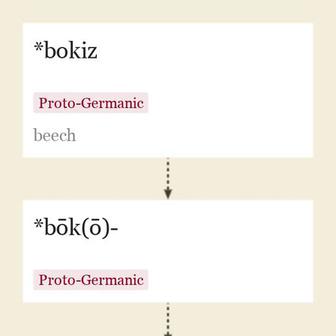workbook n.
1910, from work (n.) + book (n.).
Entries linking to workbook
Old English weorc, worc "
The meaning "
Work of art attested by 1774 as "
Proverbial expression many hands make light work is from c. 1300. To have (one's) work cut out for one is from 1610s; to have it prepared and prescribed, hence, to have all one can handle. Work in progress is from 1930 in a general sense, earlier as a specific term in accountancy and parliamentary procedure.
Work is less boring than amusing oneself. [Baudelaire, "Mon Coeur mis a nu," 1862]

Middle English bok, from Old English boc "
Latin and Sanskrit also have words for "
The sense gradually narrowed by early Middle English to "
The use of books or written charters was introduced in Anglo-Saxon times by the ecclesiastics, as affording more permanent and satisfactory evidence of a grant or conveyance of land than the symbolical or actual delivery of possession before witnesses, which was the method then in vogue. [Century Dictionary]
From c. 1200 as "
updated on November 28, 2012